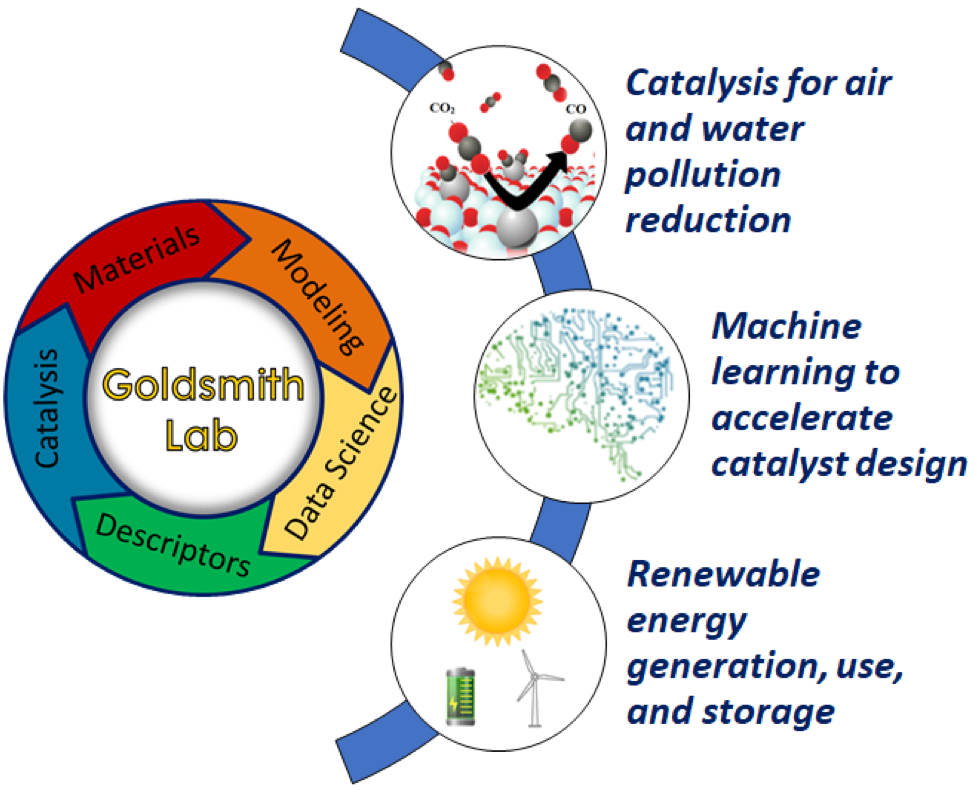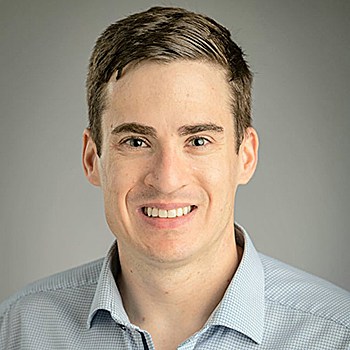Bryan R. Goldsmith, Dow Corning Assistant Professor in the U-M Department of Chemical Engineering, has been honored as a recipient of the OpenEye Outstanding Junior Faculty Award in Computational Chemistry. The American Chemical Society (ACS) grants the award biannually through their Computers in Chemistry (COMP) Division.
“I am honored to be selected for this award alongside the other awardees,” said Goldsmith. “Thank you to the Computers in Chemistry Division of the American Chemical Society and OpenEye Scientific. I look forward to presenting at ACS Fall 2022 and interacting with everyone.”
The ACS OpenEye Outstanding Junior Faculty Award is given in the spring and fall to four tenure-track junior faculty members.
The COMP Division of ACS focuses on how computers can aid in solving problems in chemistry. The Division keeps track of new developments in computer hardware, software, and networks to keep its members up-to-date on how they can utilize these advancements in their research. There are currently over 2,300 members from industry and academia in the Division.
COMP also promotes participation for undergraduate and graduate students, particularly through providing travel grants for graduate students to present their work at the ACS national meetings.
Bryan Goldsmith has been an assistant professor in U-M ChE since 2017 and was honored with the title of Dow Corning Assistant Professor in 2020. He has over 35 publications to his name in the field of catalysis for energy and environmental applications and was recently featured as a “Movers & Shakers” in Catalysis by The Catalyst Review magazine. He is currently serving as Vice-President of the Michigan Catalysis Society, Faculty Advisor of the AIChE Student Chapter at U-M, and as an advisory board member of the Chem Catalysis journal (Cell Press).
Goldsmith’s recent research includes using state-of-the-art machine learning approaches to understand and design heterogeneous catalysis.
ACS previously supported Goldsmith in 2020 with the Petroleum Research Fund Doctoral New Investigator grant.
The American Chemical Society (ACS) was established by Congress in 1876 to advance chemical sciences for the benefit of the global community. Today, ACS has over 151,000 members across 140 countries, making them one of the largest scientific organizations in the world.

